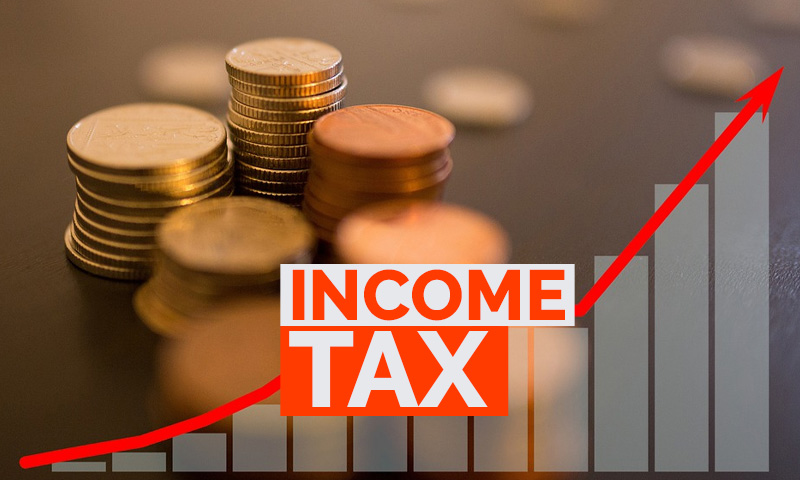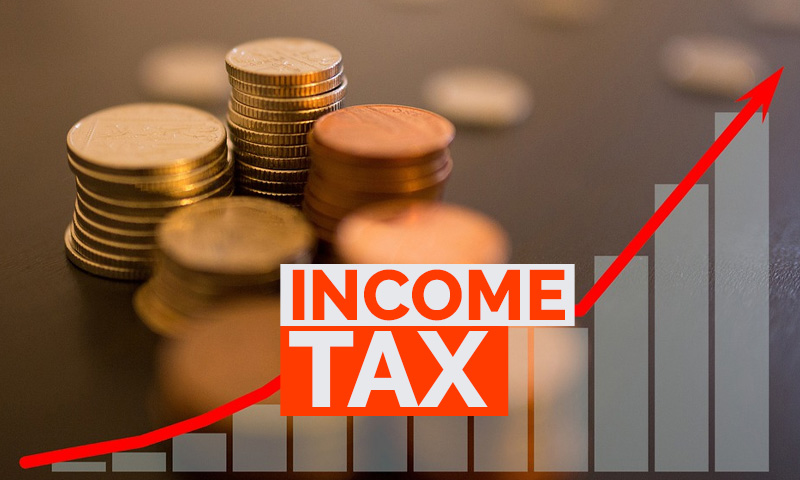Receiving an incomeReceiving an income tax bill to the salaried employee is the time of tension. tax bill to the salaried employee is the time of tension. You, after all, dutifully file your taxes once in a year, complete Form 16 and wait that all is well. However, when you receive a notice by the Income Tax Department, suspicions and misgivings begin to creep in: Are you sure? What do I need to do? Will I face a penalty?
We will assist you in this blog to authenticate income tax notice, why these notices have fallen in the hands of salaried employees, and that you can have a clear and step-by-step plan to respond understandingly, without panicking.
What is the Reason Salaried Employees receive an Income Tax Notice?
To begin with we need to know why an income tax notice may be sent to a taxpayer who is just salaried:
- Discrepancies in TDS / Form 26AS
Now and then your employer gets the deduction of TDS wrong (or fails to do it), or some of the entries in Form 26AS (your tax statement) do not correspond with what you declare your income to be. This discrepancy may be noticed by the tax department.
- Mismatch of Income / Unreported Income
In case the information of the tax department (banks, mutual funds, other income sources) indicates that you earned more than the one you reported, they will raise a notice.
- Defective Return
Section 139(9) means that you will get an error correction notice, in case of errors in your return (such as a schedule being missed, or incomplete information).
- Reopening of Assessment
Under Section 148, the department may reopen your case by issuing a notice, upon which they think some of your income was not assessed, whether in previous years or otherwise.
- Random / Technical Audits
Sometimes, alerts are generated through algorithmic scan or risk profiling. Although you are a paid employee, you may become the subject of an investigation.
These are quite normal stimulants and thus a notice is not necessarily the doom. More important is how you acted--and whether you are capable of proving the notice of income tax sent to you.
Authenticate Income Tax Notice: The true definition and the importance of this term
Authenticity is the important thing before you take any action. Here’s why:
- Fraudulent notices: These are notices that scammers send requiring money or personal information.
- Even genuine notice should be checked out, to prevent answering wrong demands, or misunderstanding requirements.
In authenticating an income tax notice you are certifying its validity:
- Check notice reference number, name of assessee / PAN and year of assessment.
- Make sure that the notice is published by the right branch / jurisdiction of the Income Tax Department.
- Make sure that the quantity demanded or questions are in line with your tax account.
- You must undergo authentication, then act accordingly in responding or taking corrective measures. The omission of that authentication step can do more damage.
Plan of Action: What to do after authenticating income tax notice
When you are sure that the notice is valid, then the following is a systematic way to do it:
1. Read the Notice Carefully
Take your time. The notification will state a date, the legal section it is issued and the requests or questions. It is essential to know what is really required.
2. Attain Supporting Documents
Gather together all paperwork:
- Copy of ITR (Income Tax Return) that was filed on the respective year(s).
- Form 16 from your employer(s)
- Income / expense bank statements.
- Proving of investments, insurance, or other deductions.
- Any letter to your employer, banks etc.
3. Matching of Form 26AS / TDS Statements
Make sure that your own return is consistent with what the department is seeing in your TDS / Form 26AS data. In case there is a mismatch you would have to explain or correct it.
4. Write Your answer
Write a professional response. You should respond by:
- Details (number of reference, the year of assessment, your PAN)
- Response to each query on a point-wise basis.
- Include supporting papers.
- Assuming that you comply with the demand, calculate the tax that should be paid and interest.
- In case of disagreement, make arguments or clarifications, with supporting pieces of evidence.
5. Response on Time or Filed
Late time can result in punishment or negative effects. Answer in good time. This can be through the e-filing portal, or using physical submission (depending on your notice)
6. Seek Professional Assistance (Not Compulsory, but It is advisable)
Certain notices may be complicated. A tax professional or firm will be helpful in assisting you;
- Explain complicated sentences or require notices.
- Bargain with taxation department.
- File appeals if necessary
Punishments and Action of failure to reply
Loss of out of pocket, or a negligent and unauthenticated reply to a notice of earnings tax to income-paid workers may cause grave consequences:
- Financial fines: The tax agency is able to fine non-compliance.
- Interest on Unpaid Taxes: The debt may accumulate because of the Unpaid Taxes interest
- Legal Action: In some extreme cases, the department can bring in legal action.
- Added Scrutiny / Audits: Unresolved notices may poke holes in future filings or may cause assessments.
In a word: a timely, knowledgeable reaction is your greatest insurance.
Why Use Professional Income Tax Notice Response Service?
You may ask: it is only a notice, why can you use such a service as ServicesPlus?
Here are the benefits:
- Expertise & Precision
Professionals understand the legal terms, mathematical peculiarities and how to write an interesting accurate answer.
- Time & Stress Saving
You do not have to face the headache of understanding tax laws, gathering all the stuff and penning the correct response under stress.
- Improved Results / Lowest Risk
Experts may assist in alleviating penalties, cutting down the interest or negotiating a good solution.
- Peace of Mind
And knowing that a qualified team is working on your case makes you more confident.
On the Income Tax Notice Response on the ServicesPlus page, the clients are taken through the authentication procedure, requested to submit pertinent documents (source of income, data on TDS, and copies of returns), and given guided assistance to draft responses.
Final Thoughts
An income tax notice to salaried employees can be unnerving. But remember: receiving a notice is not a verdict. It’s an invitation to clarify, explain, or correct. Your most important first step is to authenticate income tax notice—to confirm its legitimacy and avoid scams.
After that, you move forward—gather documentation, respond carefully and timely, or get professional assistance. When handled right, a notice can be resolved cleanly, with minimal financial stress or after‐effects.
If you ever receive an income tax notice, don’t delay. Begin authentication immediately, follow the structured response steps, and let a knowledgeable service like ServicesPlus support you to turn a potentially alarming event into a manageable process.
Want help drafting your response or verifying authenticity? Reach out via ServicesPlus’s Income Tax Notice Response service for expert guidance. Your peace of mind—and compliance—are just a click away.
FAQs & Clarifications
Q1. Can a salaried employee contest a notice?
Yes—if you believe the notice is unwarranted. You can provide evidence, address the department’s concerns, or file an appeal if needed.
Q2. How long do I have to respond?
Usually, the notice will state the due date. Missing it can worsen your position.
Q3. What if I already filed everything correctly?
Then your response will focus on clarifying discrepancies—show your calculation, proof of deductions, and explain any minor deviations.
Q4. Can I respond myself?
Yes—if the queries are simple and you are confident. But for complicated cases, professional help is safer.


 Proprietorship Registration
Proprietorship Registration



